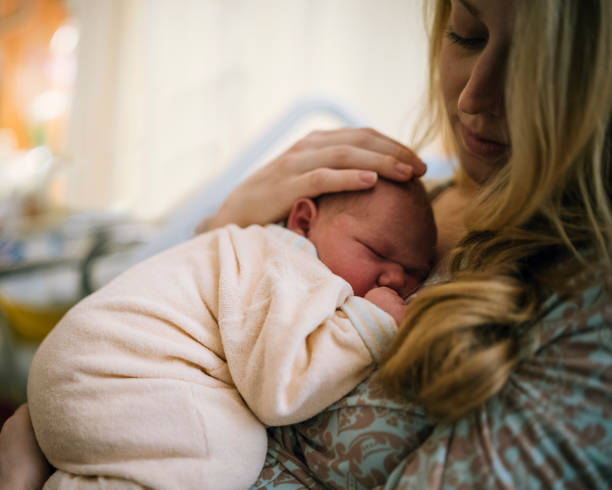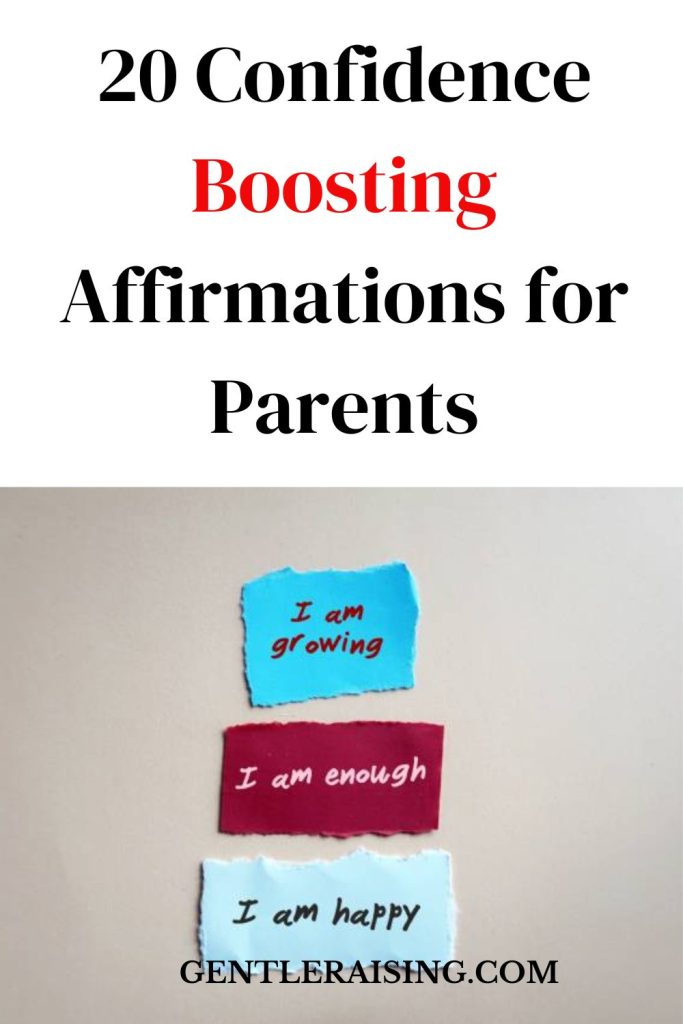Parenting is Messy. But So Are We
Here’s the truth: no matter how many books we read, how many “expert-approved” routines we follow, parenting has a way of throwing curveballs at us. One morning, you’re sipping coffee while your toddler builds a block tower peacefully, and the next mornin,g you’re wrestling a screaming, spaghetti-sauce-covered three-year-old intpyjamasas. It’s unpredictable, exhausting, and yet beautiful in ways that words don’t always capture.
And that’s where affirmations come in. Not as magic spells. Not as cheesy mantras you’re supposed to whisper with a yoga voice at 6 a.m. They’re more like anchors. Small reminders that, even when life is loud and your patience feels paper-thin, you’re still the parent your child needs.
Why Bother with Affirmations Anyway?
Let’s be honest. Some people roll their eyes at the word “affirmation.” It can feel like something plucked from a self-help aisle with pastel covers and vague promises. But strip away the fluff, and affirmations are simply intentional self-talk. They’re the words you feed your brain so that, in stressful moments, you don’t fall apart under the weight of “I’m failing at this.”
Psychologists have shown that the way we talk to ourselves shapes how we react to stress. It’s like running mental software. If your default setting is “I’m not enough,” then every tantrum feels like proof. If you rewire it with “I am learning alongside my child,” suddenly the same tantrum becomes a lesson instead of a verdict.
Think of it this way: affirmations are not about pretending everything is fine. They’re about choosing the story you’ll tell yourself when things aren’t fine.
The Challenge of Parenting Mindfully
Parenting mindfully isn’t about sitting cross-legged while your toddler meditates with you (although,, wouldn’t that be cute?). It’s about showing up, present, awareand , less reactive. Easier said than done when you’ve had three hours of sleep and the only vegetables your kid ate yesterday were the peas they picked off your plate.
The real challenges?
- Overstimulation – the constant noise, needs, and interruptions.
- Comparison culture – the Instagram-perfect family breakfasts that make your rushed cereal mornings feel “less than.”
- Guilt – the ever-present companion of most parents. Did I yell too much? Did I give them enough attention?
Mindful affirmations don’t erase those struggles. They soften the edges, helping you pause before reacting, breathe before snapping, and remind yourself: I am not defined by this one moment.
How Affirmations Fit Into Daily Parenting
You don’t need a Himalayan retreat to practice affirmations. You can slip them into ordinary moments.
- Whisper one to yourself before picking up your crying baby.
- Stick a Post-it note on the fridge with a phrase that calms you.
- Repeat one while you fold yet another load of tiny socks.
The point isn’t perfection, it’s practice. Like brushing your teeth, affirmations keep your mental hygiene in check.
30 Mindful Parenting Affirmations (With Context)
Here’s a mix of affirmations grouped by theme. Feel free to adapt them. Sometimes the difference between “I am enough” and “I am enough for my child” makes them hit home.
Patience (For the Rough Mornings)
- I can pause before I react.
- My child’s big emotions don’t define me.
- Patience is a skill I practice, not a trait I lack.
Self-Compassion (For When Guilt Creeps In)
- I don’t need to be perfect to be a good parent.
- My needs matter, too.
- I’m learning every single day, just like my child.
Connection (For the Chaos)
- I choose connection over control.
- My child needs my presence more than my perfection.
- Every meltdown is an opportunity to teach safety and love.
Resilience (For Long Days)
- I am strong enough for today.
- This hard moment will pass.
- I can reset at any time.
Boundaries (Because They Keep Everyone Safe)
- Saying no with love is still love.
- Boundaries protect both me and my child.
- Consistency creates security.
Gratitude (To Remember the Joy)
- Even in chaos, there are moments of beauty.
- I am grateful for the little things: sticky kisses, belly laughs, messy hugs.
- I notice the good in my child, and in myself.
Confidence (For When Doubt Hits Hard)
- I am the right parent for my child.
- My instincts are valuable.
- I trust the bond we’re building together.
Calm (For Bedtime Battles)
- I can bring calm into this space.
- My breath is my anchor.
- Peace begins with me.
Humourr (Because Laughter Heals)
- One day, I’ll miss this mess.
- It’s okay to laugh at the chaos.
- spilted cup is not a ruined day.
Renewal (For Burnout Days)
- I can begin again at any moment.
- Rest is part of good parenting.
- Small steps forward still count.
But How Do You Actually Use These?
Let’s be real—saying affirmations once and expecting miracles is like watering a plant once and expecting a jungle. It’s repetition that makes them stick.
- Morning ritual: read one out loud while brushing your teeth.
- Visual cues: put them on sticky notes in places you often get stressed (the bathroom mirror, the fridge, the car dashboard).
- Journaling: write one affirmation and reflect briefly on how it applies to your day.
- Voice notes: record yourself saying three affirmations and play them back when you need a boost.
Here’s the thing: affirmations work best when they’re personalised. “I am calm” might feel fake if you’re running on fumes. But “I can choose one calm breath right now” feels more doable.
A Quick Peek Into the Science
This isn’t just fluffy talk. Cognitive Behavioural Therapy (CBT) teaches that thoughts shape emotions, which shape actions. Neuroplasticity, the brain’s ability to rewire itself, means repeated thoughts carve actual pathways. When you feed your brain steady, compassionate language, you make it easier to access those calmer responses under stress.
It’s a little like learning to drive. At first, you consciously check every mirror and grip the wheel tightly. Over time, it becomes second nature. Affirmations do the same with emotional regulation.
Special Situations: When You Really Need Them
- Toddler meltdown in public: I can stay grounded even when others are watching.
- Bedtime chaos: I bring calm into this routine.
- Parental burnout: I deserve rest without guilt.
- Sibling rivalry: I am teaching them kindness through consistency.
Sometimes it’s about having one phrase you can cling to when your mind goes blank.
Don’t Forget the Dads
Parenting affirmations often lean maternal, but dads need them just as much. In a culture that still praises “provider” roles over “nurturer” ones, fathers can feel sidelined. Affirmations help reframe that.
- My presence is powerful.
- I am more than a paycheck; I am a safe place.
- It’s okay to parent differentlyfromn my partner; I still bring value.
Affirmations for Kids, Too
Here’s a hidden bonus: when you practice affirmations, your kids overhear. They watch how you speak about yourself. Imagine a child growing up hearing their parent say, “I’m learning too,” instead of “I’m terrible at this.” Thatmodellingg plants seeds of self-kindness in them.
You can even invite your child into the practice:
- “I am kind.”
- “I am loved.”
- “I can try again.”
It becomes a family rhythm, not just a personal one.
When Affirmations Feel Fake
Sometim,es repeating “I am calm” while you’re on the verge of tears feels like a cruel joke. That’s normal. Affirmations aren’t meant to deny reality. They’re meant to stretch it just enough to let in hope.
If one feels false, tweak it:
- Instead of “I am patient,” try “I practisinging patience.”
- Instead of “I am calm,” try “I am learning to pause.”
Make it believable. Make it yours.
Final Thoughts: Parenting Is a Marathon, Not a Sprint
Parenting doesn’t hand out medals for perfect mornings or spotless houses. It’s about showing up, again and again, even when you’re tired, messy, or unsure. Affirmations don’t solve parenting, but they remind you of the bigger picture when the little things feel overwhelming.
So maybe tomorrow morning, when the cereal spills and the tantrum erupts, you’ll remember one small phrase: This hard moment will pass. And it will. Because it always does.
And then, right there in the chaos, you’ll catch a glimpse of something else, the kind of parent you’ve been becoming all along.

